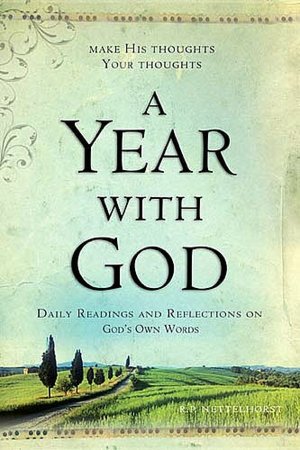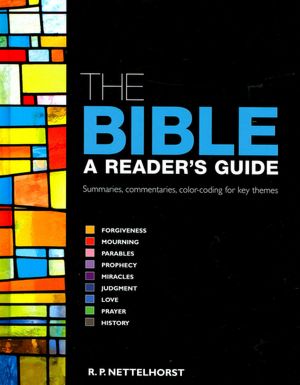Once again, take warning all who read this post. The language that follows is somewhat explicit. If discussions of sex offend you, then you might want to skip this blog post. Of course, you might also want to make a point of avoiding ever reading the Song of Songs in your Bible.
I have come into my garden, my sister, my bride; I have gathered my myrrh with my spice.
I have eaten my honeycomb and my honey; I have drunk my wine and my milk.
Eat, O friends, and drink;
drink your fill, O lovers. (5:1)
In the previous section, the man described his beloved as a a garden. Her love was described as better than wine in 4:10, honey was under her tongue in 4:11, her perfume was compared to spice in 4:10, myrr is associated with her in 4:6 and 14; milk is also under her tongue in 4:11. So, one would gather that there is some heavy physical contact going on here. Furthermore, it ends with the couplet encouraging them to eat and drink, the idea obviously being to satisfy themselves fully with one another.
I slept but my heart was awake.
Listen!
My lover is knocking:
“Open to me, my sister,
my darling,
my dove,
my flawless one.
My head is drenched with dew,
my hair with the dampness of the night.”
I have taken off my robe–
must I put it on again?
I have washed my feet–
must I soil them again?
My lover thrust his hand through the latch-opening; my heart began to pound for him.
I arose to open for my lover,
and my hands dripped with myrrh,
my fingers with flowing myrrh,
on the handles of the lock.
I opened for my lover,
but my lover had left;
he was gone.
My heart sank at his departure.
I looked for him but did not find him.
I called him but he did not answer.
The watchmen found me as they made their rounds in the city.
They beat me,
they bruised me;
they took away my cloak,
those watchmen of the walls!
O daughters of Jerusalem,
I charge you– if you find my lover,
what will you tell him?
Tell him I am faint with love. (5:2-8)
This section is pretty obvious, though I find it remarkable how many commentators, even those who supposedly don’t allegorize the thing as a poem expressing the love of Christ for the church, miss or ignore what’s actually going on here.
Obviously, following from verse one of chapter four, where the man announces that he has come into the garden — that is, that he and she are making love — what follows is standard Hebrew expansion, going into rather intimate detail about the process. It begins with her awakening and finding her lover roused and ready to go. He lets her know that he is more than ready; perhaps he has ejaculated once already, hence the dew on his head and the dampness of the night. She seems, following that, to have already felt like she had taken care of things, complaining of taking off her robe and having washed her feet. The word “feet” in certain contexts refers to the genitals; perhaps that is the case here.
Then, her lover begins manual manipulation of the clitoris, rousing her; she begins lubricating and opens to him — and then all at once, just as she’s getting ready, he’s already done and gone. So she experiences some frustration, calling, but he’s limp, and so nothing more is going to happen any time soon. What follows then is the image of the watchman: finding her, stripping her, beating her. She didn’t get what she had been anticipating and what she needed from her lover.
Alternatively, while the watchmen segment might reference a bit of S&M, I think that’s unlikely. Instead, it most probably it’s simply expressing her disappointment that he was a bit too quick. Still, despite all that, her ardor is not lessened, and she thinks no less of him. She is still desperately in love and wants him more than anything. And of course that becomes clear with the verses that follow, where she describes his physical attributes, explaining to those who might wonder, what makes her man so special to her.
How is your beloved better than others, most beautiful of women?
How is your beloved better than others, that you charge us so?
My lover is radiant and ruddy,
outstanding among ten thousand.
His head is purest gold;
his hair is wavy and black as a raven.
His eyes are like doves by the water streams, washed in milk, mounted like jewels.
His cheeks are like beds of spice yielding perfume.
His lips are like lilies dripping with myrrh.
His arms are rods of gold set with chrysolite.
His body is like polished ivory decorated with sapphires.
His legs are pillars of marble set on bases of pure gold.
His appearance is like Lebanon, choice as its cedars.
His mouth is sweetness itself;
he is altogether lovely.
This is my lover,
this my friend,
O daughters of Jerusalem. (5:9-16)
This section opens with the daughters of Jerusalem asking the woman a question: “how is it that this guy is so special?” So, she tells them, describing her lover’s physical attributes. There is no shallowness in this; the point of the Song of Songs is to express the delights of physical love. So the description of one another’s bodies is the appropriate focus. So she describes his body, just as he with her. She, too, describes him in terms of a garden, in terms of precious stones and metals, focusing on all his parts. And yet, there is more to him than just the individual parts; she points out at the end that he is altogether lovely, as a whole, and that he is both lover and friend. Her physical description of him, just as the physical description he made of her, sets us up for what follows: they will be playing in these gardens, these constructs of theirs. Both he and she delight completely in one another.
To emphasize: the purpose of the whole poem called the Song of Songs is to celebrate the joy of sexual expression, of the fulfillment of that pleasure. The poem is supposed to titillate, to excite. It achieves its purpose well, at least in its cultural context, to anyone who pays half attention, to anyone who is not shocked that sex would be in the Bible–as if sex and God somehow are incompatible. God’s first commandment (Genesis 1:28 : be fruitful and multiply, i.e. have sex) is a lot of fun. Why do we then think that God intends us to be unhappy? But of course the answer shows up in the same story just a couple of chapters later in Genesis, because we–in the persons of Adam and Eve–failed to really love God, and we then decided that God was holding out on us, that he didn’t have our best interest in mind. We doubted that God loved us as much as we love ourselves. And that little doubt is still with us, eating at us, destroying our relationships with God and with one another.
 Send to Kindle
Send to Kindle
 A Year With God
A Year With God A Year With Jesus
A Year With Jesus The Bible's Most Fascinating People
The Bible's Most Fascinating People The Bible: A Reader's Guide
The Bible: A Reader's Guide Antediluvian
Antediluvian Inheritance
Inheritance John of the Apocalypse
John of the Apocalypse Somewhere Obscurely
Somewhere Obscurely The Wrong Side of Morning
The Wrong Side of Morning